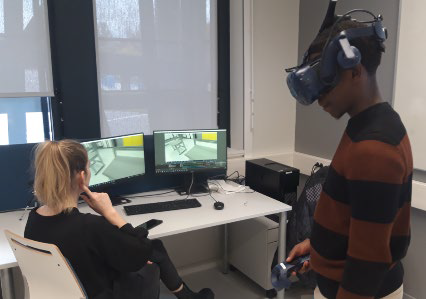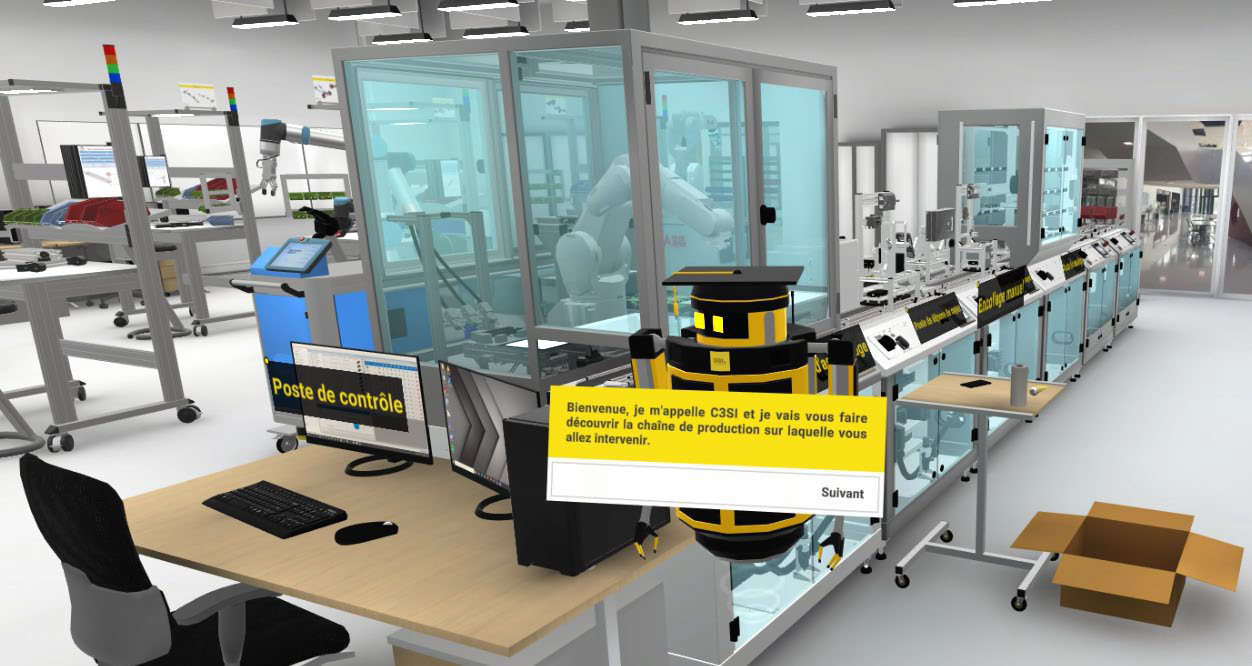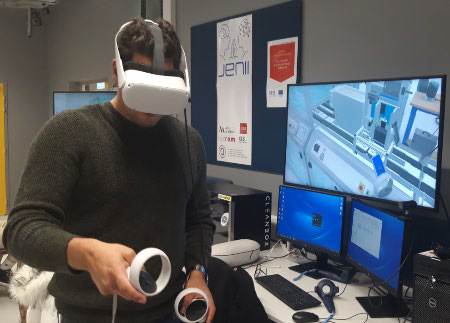Jenii – digital, immersive, and interactive teaching twins

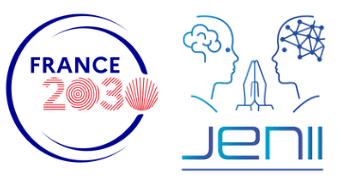
- Partners: ENSAM, CNAM, CESI, CEA Tech
- Call for proposals: PIA 4 Digital Demonstrators in Higher Education – “DemoES”
- CESI budget for the project: €1.99 million (€1.74 million in aid)
- Total PIA funding: €9.5 million
- Project launch: November 2021
- Project duration: 4 years
The JENII (Digital, Immersive, and Interactive Teaching Twins) project, ANR-21-DMES-0006, is a higher education demonstrator supported by the 2021 “DemoES” investment program for the future, bringing together a consortium of three academic partners : the Ecole Nationale Supérieure d’Arts et Métiers (ENSAM), the Conservatoire National des Arts et Métiers (CNAM), the higher education and vocational training group (CESI) and a leading technological research center, the French Alternative Energies and Atomic Energy Commission (CEA).
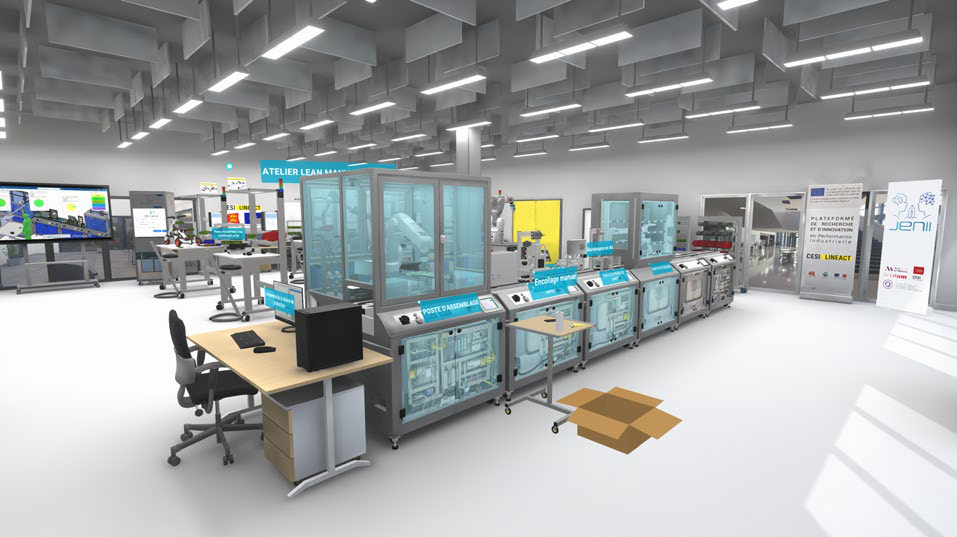
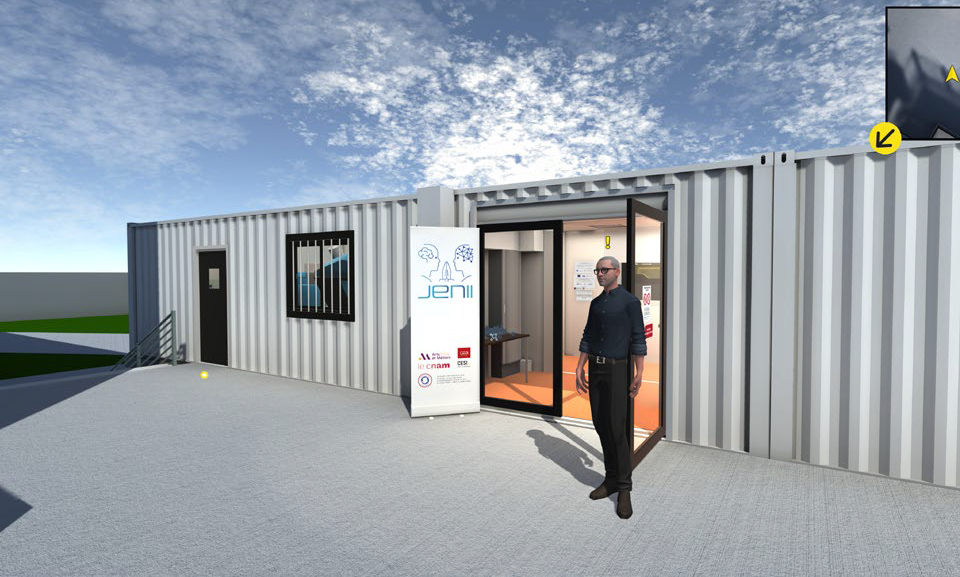
The four-year project began in November 2021.
The aim of the project is to offer specific training for the industry of the future, based on immersive and collaborative digital twin technology for real industrial systems. This training is intended to benefit a wide range of learners, trainers, and technical education institutions. Incorporating aspects of personalization, multi-site access, and multimodality, this new training program will provide remote access to real industrial systems in all their complexity and enable the use of tools that are or will be part of the industrial world itself for training purposes.
The JENII project represents a breakthrough in technological training, as the subject matter and training methods evolve in tandem with the context in which they are taught. The JENII project is transforming the paradigm of technological training through two major advances:
- Providing remote access to technological training environments, without resorting to simplified virtual representations of the industrial world that are more synonymous with gaming than training, constituting a playful enclosure rather than an opening to a world for which one is preparing;
- Enabling the rapid development and dissemination of the educational tools needed to support technological developments and industrial professions, by quickly making available an environment developed by one partner to meet a training need expressed by another.
The project aims to develop new learning environments, training models, and methodologies to enable deployment (material and human), adaptation to individualized and multimodal training, trainer training, and transformation support. The project stakeholders are involved in technological, initial and professional training at various levels (engineers, technicians) within a national network. They each have close ties to the industrial world (training and research). Finally, the project integrates a partnership and regional approach into all of its objectives and action plans (EdTech and industry for the sharing of tools and knowledge—open source and Creative Commons dissemination strategy—as well as regions including TNE and CMQ).
The actions of CESI and CESI LINEACT focus on:
- Coordination of WP1: Development or improvement of individualized hybrid and multimodal educational pathways,
- R&D on Digital Twins for Industry of the Future and Metal Additive Manufacturing platforms,
- Integration of Digital Twins into our training programs,
- Analysis of the impact of these systems on learning and future professional integration,
- Participation in proof of concept and experiments on virtual campuses.
2 doctoral students are co-supervised by CESI LINEACT as part of JENII.
| Last Name | Name | Supervisors | Year of commencement of thesis | Thesis title |
|---|---|---|---|---|
| BONDESAN | Pierre | S. RICHIR, ENSAM S.FLEURY, ENSAM, A. BOIDASAN, CESI | 2022 | Evaluation of the educational effectiveness of digital twins in immersive virtual environments |
| FEDDOUL | Yassine | F. DUVAL, CESI N. RAGOT, CESI V. HAVARD, CESI | 2022 | Contextual information from the digital twin in augmented perception for industrial robotics and human-robot collaboration |
CESI’s platforms
In this project, CESI‘s strategy is to devise new training methods by providing remote access to real, complex industrial environments, without risk to students or equipment, by developing digital twins of the “Industry of the Future” demonstrators on the technology platforms developed by CESI LINEACT.
These digital twins incorporate CESI LINEACT’s scientific work on interoperable and flexible architectures between the immersive digital twin and the physical twin. They are also based on the INTERVALES development framework proposal for virtual reality and augmented reality, which enables the editing of procedures and business scenarios in an industrial context and was initiated as part of a CIFRE thesis with Assytem (formerly Oreka Ingénierie). This work is also being studied at CESI LINEACT in terms of the educational and practical applications of digital twins interfaced with XR for training purposes.
To illustrate the work carried out as part of the JENII project, the digital twin of the flexible production workshop, consisting of an automated educational production line, manual and cobotic workstations, as well as robots and autonomous mobile manipulators, is being used in the industry project in the first year of the integrated preparatory cycle. Through this digital twin, nearly 1,100 students are discovering, virtually but for the first time for many of them, an industrial process for assembling children’s bicycles and studying production management with topics such as product nomenclature, manufacturing ranges, workstation layout, and production flows. This digital environment is deployed on campuses through the CESI Digitalab and equipped computer classrooms. It is also deployed in the automated system project in the fourth year of engineering training, allowing students to experiment with, implement, and program robotic manipulators.
